World MS day: “A day to celebrate global solidarity and hope for the future”
This year’s theme on World MS day is: “Bringing us closer” - to a cure, to better understanding and to those who struggle with MS daily

“The disease with a thousand faces” – also known as Multiple sclerosis. Why a thousand faces? Because each person diagnosed with this incurable chronic disease has unique symptoms. We still don’t know so much about MS, so the World MS organization decided to “bring people closer” through research for World MS day 2018.
“The #bringinguscloser campaign is about connecting people affected by MS with those involved in MS research, including scientists, students, nurses, fundraisers, volunteers, and more. It’s a chance to come together to celebrate what we’ve achieved in MS research so far, and share our hopes for the future.”
Let’s connect – let’s use this day to spread awareness – let’s put ourselves in someone else’s shoes just for today – let’s get closer.
What is Multiple sclerosis (MS)?
“Multiple sclerosis (MS) is an incurable chronic disease in which the immune system destroys tissue in the brain and spinal cord.”
According to the World MS organization: “Multiple sclerosis, or MS, is one of the most common neurological disorders and causes of disability in young adults. It is a disease of the central nervous system that disrupts the flow of information within the brain, and between the brain and the body.”
MS is caused by the insulating covers of the nerve cells in the brain and spinal cord being damaged. Because of this damage, the communication between different parts of the nervous system is disrupted. The person affected can therefore start to experience a range of symptoms, which can be physical, but also mental and psychiatric.
The US National Multiple Sclerosis society has an informative video that gives a clear explanation of this mysterious neurological disease:
The disease with a thousand faces
As is the case with another unfathomable neurological disease; Parkinson’s, MS can manifest itself a lot of different ways, with different symptoms and different ways of developing. Someone who has been diagnosed can have years of non-painful symptoms, some never even have to use a wheelchair and for others it can be very different.
Four distinct types, or rather disease courses, have been determined:
- Clinically isolated syndrome (CIS)
- CIS is indicative of multiple sclerosis but it does not automatically mean that the person in question has MS. They could, however, have a higher risk of developing it. CIS is an episode of neurologic symptoms caused by inflammation and damaged myelin (the coat that protects your nerves) in the central nervous system and must last for at least 24 hours. If the brain of the person affected shows lesions on an MRI scan which are similar to those of MS, it’s likely that the person will go on to develop relapsing MS. Early treatment by means of a disease-modifying therapy has been shown to delay the start of MS, which is a very positive development.
- Relapsing-remitting MS (RRMS)
- 85% of people with MS receive this as their first diagnosis. RRMS is defined by clearly marked attacks (or relapses) of new or progressive neurological symptoms. These relapses are then followed by remissions (of partial or complete recovery) during which all symptoms may disappear. However, they can also continue or even become permanent. Over time, RRMS can be characterized as active, non-active, worsening or non-worsening, depending on the number of relapses or new MRI activity.
- Primary progressive MS (PPMS)
- This disease course is characterized by an accumulation of disabilities, which means that neurological functions will worsen without early remissions. As is the case with RRMS, PPMS can also be characterized as active, non-active, with progression or without progression, but there can be brief periods where the disease is stable. About 15% of people with MS are diagnosed with PPMS.
- Secondary progressive MS (SPMS)
- This course is characterized by an initial relapsing-remitting stage – most people who are diagnosed with RRMS will eventually have it develop into SPMS. With SPMS, over time, there is a progressive worsening of neurological functions. SPMS can also be characterized as active, non-active, with progression or without progression. As is the case with all the different types of MS, each person’s experience will be different.
In order to explain the idea that MS has a lot of different faces, the following video was created for World MS day back in 2009. Take a look and maybe you’ll get a better understanding of what so many people are facing:
Research into MS
As we’ve seen, this year’s theme is research. It goes without saying that there’s still a lot of necessary research to be done, as at this moment there is no cure nor is the cause of MS known. The research done over the last few decades has given us some insight, along with several therapies that have been helpful to MS patients. These therapies have been developed to prevent new attacks or relapses and to prevent disability.
What do we know about MS?

Even though we do not know what the cause of MS is, the research done has enabled scientists to define several different factors that may influence the development of this disease. What are these factors?
- Environmental factors:
- one of the most peculiar factors is geographical; MS is known to affect a lot more people who live farther away from the equator. This means that people in northern European countries are more prone to MS then people living in Argentina, for example. Research has shown that it is safe to say that someone born in a northern European country but who moves closer to the equator before the age of 12 will not develop MS. However, if someone from a country near the equator moves to a colder country before the age of 12, the chances of them getting MS are the same as someone who’s always lived in that cold country. Research suggests that a lack of vitamin D plays an important role in the development of MS, along with the amount of sunlight one has year-round.
- There is an increase in evidence that shows that smoking also plays a part in the development of MS, and that it could be an independent risk factor.
- Immunologic factors:
- We know that the myelin coating around the nerve fibres in the central nervous system are damaged by MS. Thanks to all the research that has already been done, researchers are now able to identify the immune cells that mount the attack. This research will bring us closer to the cause of MS which will take us one step closer to finding a cure.
- Infectious factors:
- Viruses that we have during childhood, for example measles and the mumps, but also other infections like chlamydia and herpes are well-recognised cases of demyelination and inflammation. Therefore, there is a possibility that a virus or other infectious agents can trigger MS. Research is currently being conducted into several viruses to learn more about this factor.
- Genetic factors:
- MS isn’t hereditary; however, some genetic variations can increase a person’s risk of being diagnosed with MS. When you have a first degree relative with MS your risk of developing MS is higher. Luckily, new techniques for identifying genes that are available today could answer the question about the role of genes in MS.
Some important dates in the history of MS
The World MS organization decided to make this year’s theme all about the research we are in such desperate need of, as well as bringing us closer through research. These global awareness days are created in order to bring the community together so that awareness about the disease can be raised, stories can be shared and so that people can campaign with and for those who live with MS.
The World MS organization has provided the following awareness tools that they hope will be spread around the world, so that as many people as possible will see them and learn more about MS.
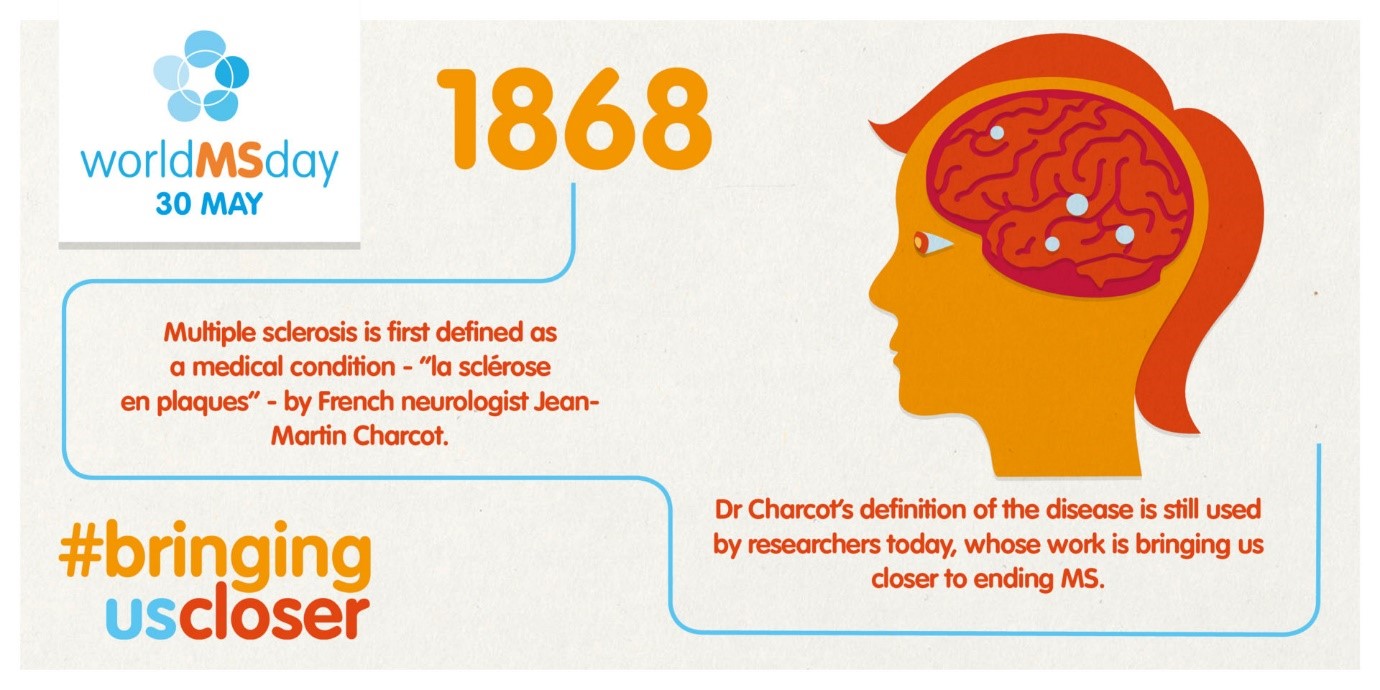
In 1868 Multiple Sclerosis is first defined as a medical condition
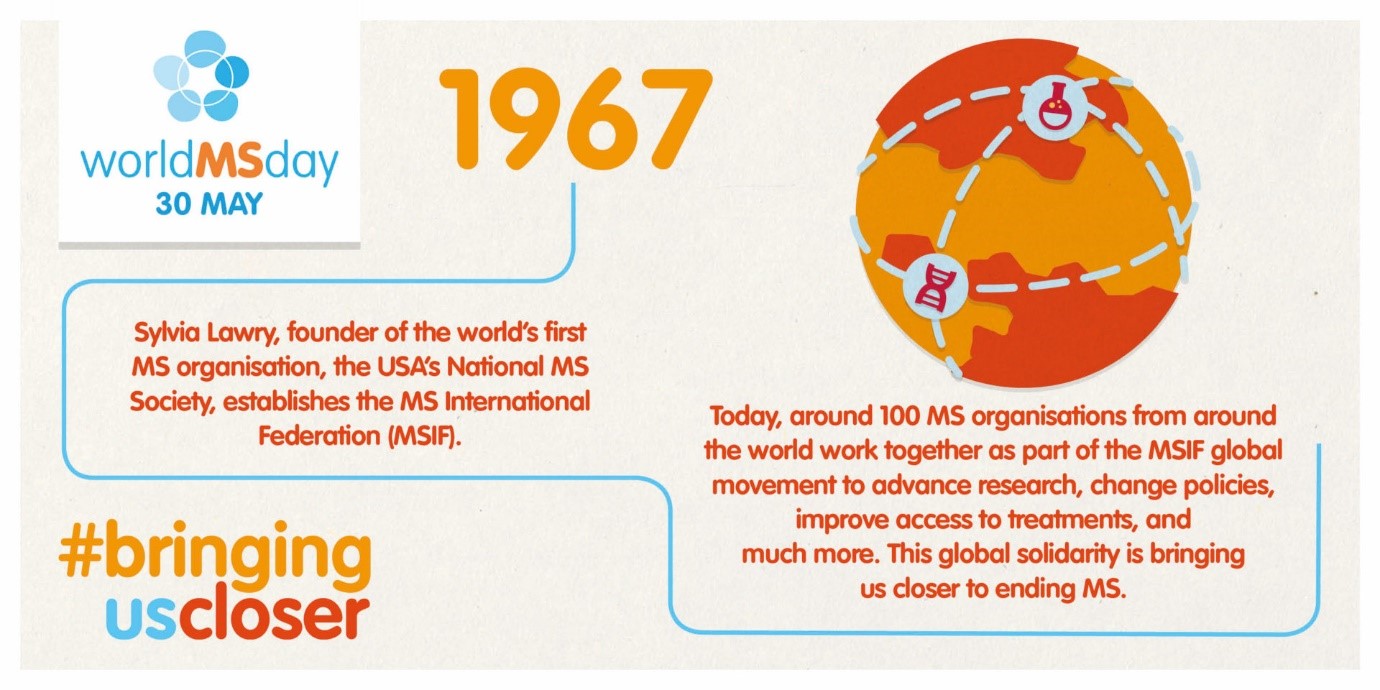
1967 Sylvia Lawry, founder of the world’s first MS organization establishes the MS International Federation
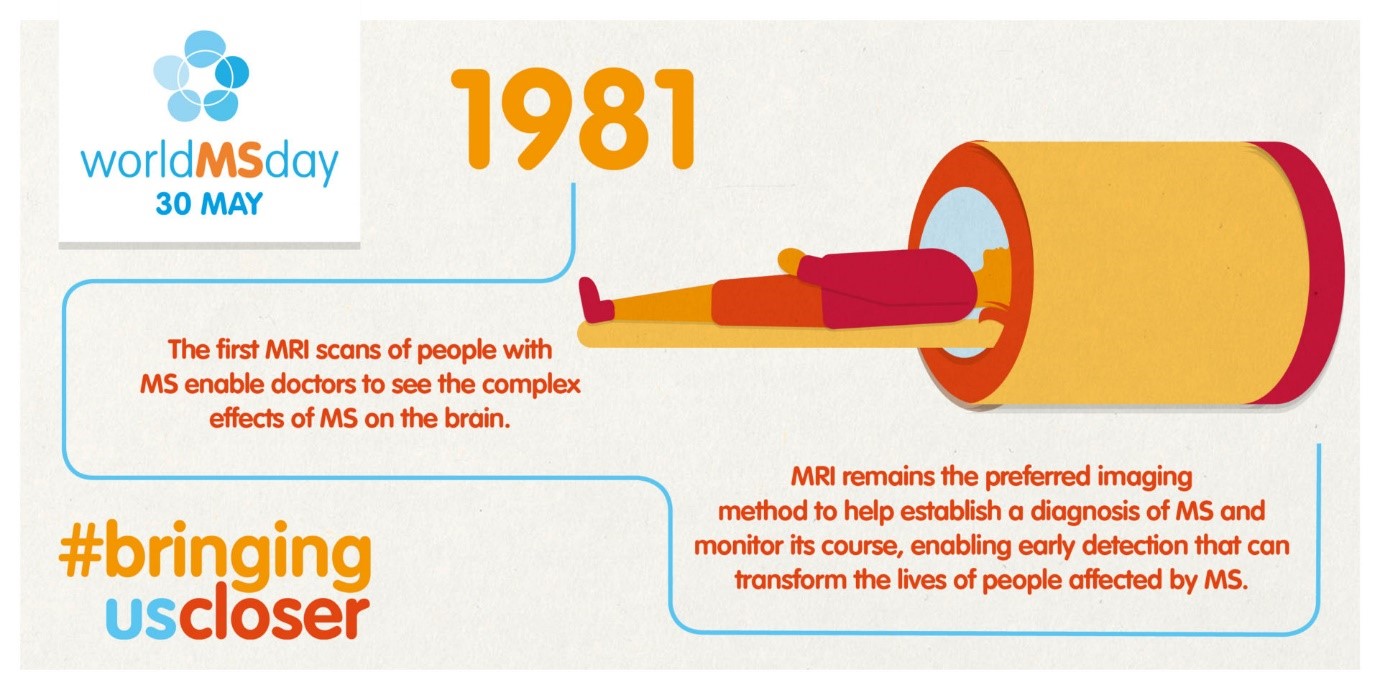
The first MRI scans of people with MS enable doctors to see the complete effects of MS on the brain
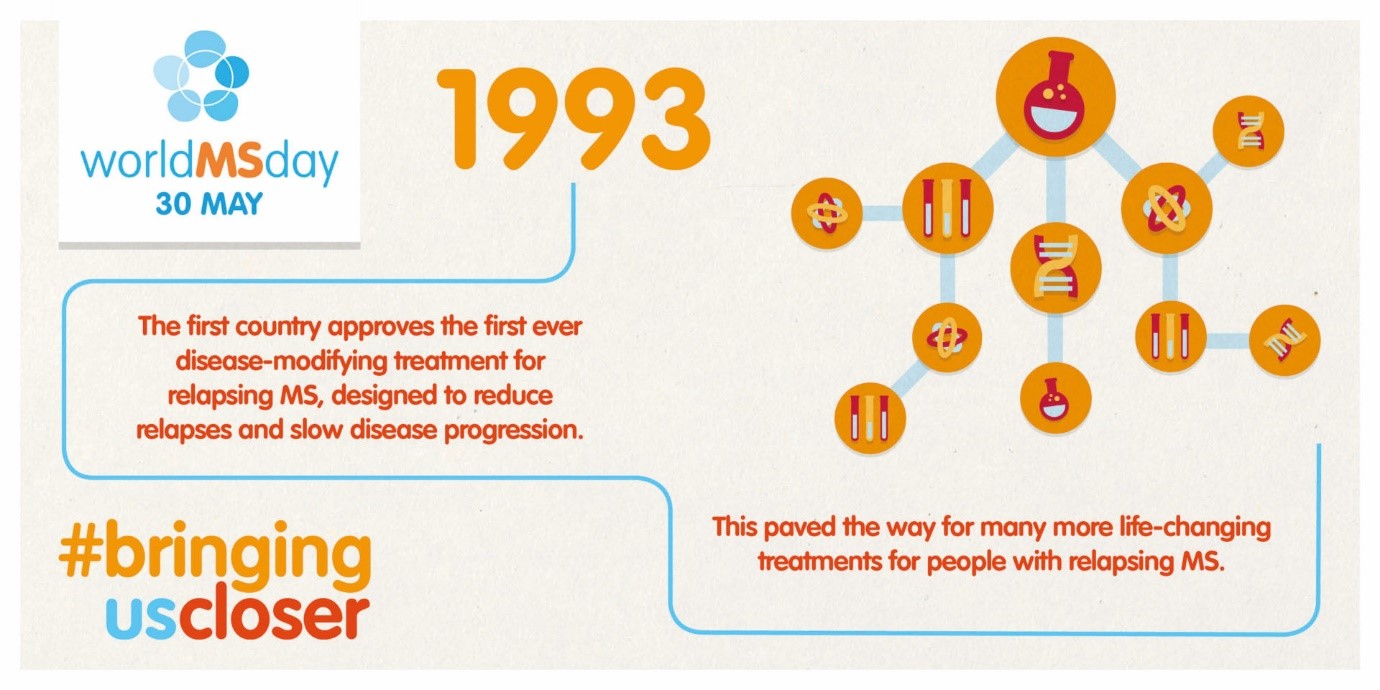
The first country approves the first ever disease-modifying treatment for relapsing MS, designed to reduce relapses and slow disease progression
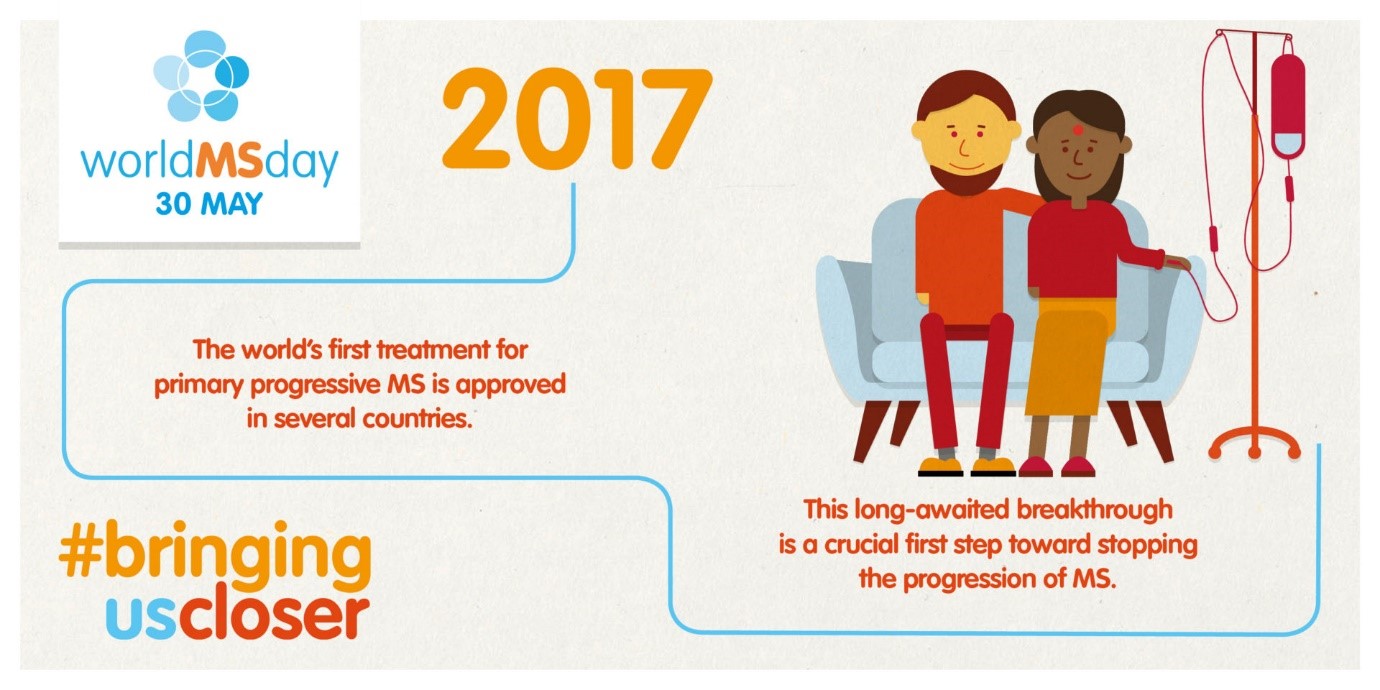
The world’s first treatment for primary progressive MS is approved in several countries
Balance, Exercise and MS
The national MS society makes a lot of reliable information available to anyone who has an interest in the subject. Research has shown that physical activity is very beneficial for people with MS, and that through exercise, people experience a greater sense of well-being along with:
- Improved balance
- Muscle endurance
- Improved coordination
- Increased muscle strength
- Increased cardio-respiratory endurance
- Maintained and improved range of joint motion and flexibility
And even non-psychical benefits such as the social interaction that the experience provides.
At Stannah, we have spent quite some time stressing the importance of working on one’s balance, as loss of balance can be the cause of serious injuries through falls.
MS can affect your balance in a lot of ways:
- Difficulty with gait and walking are one of the most common mobility limitations of MS
- Loss of Balance can result in swaying and “drunken” gait
- Dizziness and vertigo, making feel people off-balance
The good news, however, is that being involved in an exercise program can really help people who suffer from MS. Amongst other things, these are the biggest benefits exercise can bring to an MS patient:
- Decreased swelling
- Increased flexibility
- Increased circulation
- Better fatigue management
- Balance issues can be addressed
- Deeper and more regular breathing
- Spasticity and muscular tension/atrophy can decrease
Mobility and MS
The biggest impairments that people with MS suffer from is a considerable decrease in their mobility. Fatigue is a symptom that a lot of MS patients suffer from, and is one of the most difficult symptoms to manage.
Stannah has been able to help a lot of people who suffer from the effects of MS on their bodies, minds and overall life by constantly working to improve our stairlifts, and by investing in new techniques to make life easier. As one might imagine, not being able to move freely in your own home, plus dealing with all the other impairments MS can bring can be very difficult to accept and can contribute to depression.
We are hopeful that initiatives such as World MS day will create more awareness and more research opportunities so that either a cure can be found or we can stop the disease from developing in the first place.
Research is cause for celebration indeed!
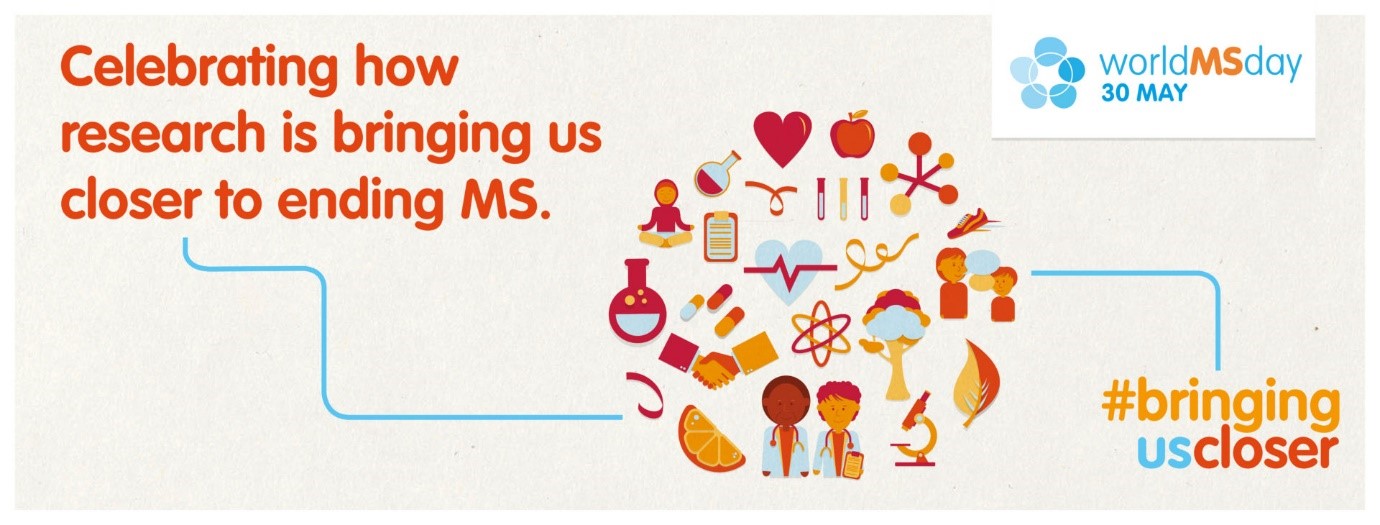
Celebrating how research is bringing us closer to ending MS

 USA
USA